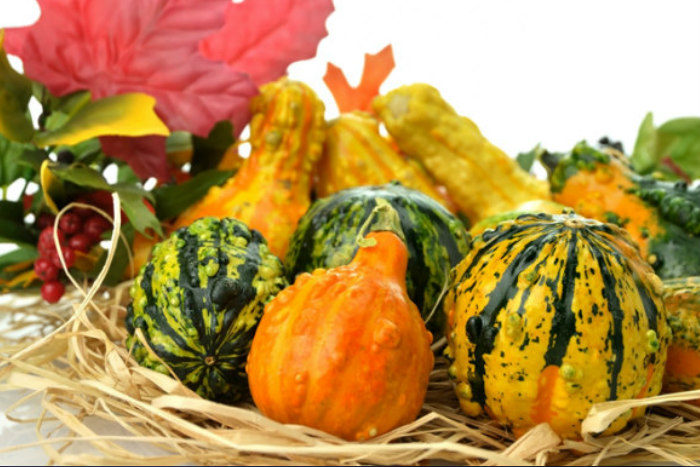
"Happy Thanksgiving, hooray, hooray, hooray! Aren't you glad you're not a turkey on this Thanksgiving Day..."
These words by Jewish musician Debbie Friedman start to stick in my head this time of year. It's a silly child's song, but it leads me to wonder: Is Thanksgiving a Jewish holiday?
My first inclination is to say no, it's an American holiday (though Thanksgiving is also celebrated in Canada, on the second Monday of October). Many of us have fond memories of time spent with family indulging in a glorious feast of turkey, mashed potatoes, pumpkin pie, and whatever else has earned a place on the traditional family menu.
But is it a Jewish holiday?
Yes, it can be. Setting aside the feasting and football, we discover that there is a way to bring our Judaism into our observance of this sacred American holiday. We can even use it as a means of teaching our children one of our most important values: thankfulness. The idea of giving thanks is a familiar theme in our tradition. Judaism views every day as a day of thanksgiving; every day is a chance to say "thank you" to God for the many blessings we have.
From the words we say upon arising ("Modeh ani l'fanecha," "I give thanks to You [for compassionately restoring my soul]") to the daily multitude of blessings and prayers in our worship services, our tradition teaches us that showing gratitude is part of our way of life. Every day brings ample opportunities for acts of mindfulness and thanksgiving that can transform our lives and repair the world. Why, then, does the idea of a holiday of thanksgiving not feel Jewish?
Maybe it's because of its origins. In elementary school, I was always told that the holiday came about because of the pilgrims who had arrived on the Mayflower. After reaching America and finding a place to settle, they thanked God for all with which they had been blessed. The original Thanksgiving dinner, then, was also a religious one.
This is difficult to understand since our own Thanksgiving tables are often void of religious ritual; there is none that is required. But we can give our meals a Jewish angle if we stop to remember how rich our lives are. If we only take the time to say a few words of thanksgiving to God, whether for bringing the family together or for giving us the food on our plates, we can make Thanksgiving have Jewish meaning.
The following ritual is a suggestion for doing just that:
1. Read Before the Meal Begins
Sovereign of the universe, creative Source of all being, from You come our blessings from day to day and from year to year. How great are Your love and kindness, O God! The towering mountains and the shaded forests, the abundant streams and the fruitful earth tell of Your endless bounty.
For this land so richly blessed, we raise our voice in joyous thanks. To these shores Your children have come from many lands to seek liberty and new hope. All have been pilgrims to this western world. Though they did not always practice the justice they sought, here they found renewed purpose, increased strength, and the opportunity to outgrow old fears and superstitions. For our country, for its freedom promised and attained, the richness of its natural blessing, and the growing harmony of its citizens, we give humble thanks.
God of justice and right, inspire all who dwell in our beloved land with loyalty to the ideals of its founders. Give us wisdom and strength to labor for its well-being, on the firm foundation of justice and truth. Fill us with the spirit of kindness, generosity, and peace, that this land may be a beacon-light to many peoples.
2. Be Thankful
Ask each person sitting at the table to share the things for which they are thankful.
3. Pray Together
Join together in reciting the words of HaMotzi, the blessing before a meal:
Baruch Atah Adonai, Eloheinu Melech haolam, Hamotzi lechem min haaretz.
Our praise to You, Eternal our God, Sovereign of the universe, who brings forth bread from the earth.
4. Show Love
Hugs and other displays of love or general affection are not required but may be appreciated gestures, if and when appropriate. Think of other ways to show your love and appreciation for one another, too, beyond or instead of physical touch.
5. Be an Ally
On this day of Thanksgiving, let us be reminded of the contemporary problems Native Americans face. To learn more about how to be a better ally to Native American and Indigenous Peoples, see llumiNative’s “An Advocate’s Guide to Indigenous People’s Day.”
6. Enjoy Jewish Foods
Here are 18 recipes that will make for a delicious, Jewish-infused Thanksgiving dinner at home this year.
So is Thanksgiving a Jewish holiday? It is up to us to make it so.
Explore Jewish Life and Get Inspired
Subscribe for Emails
